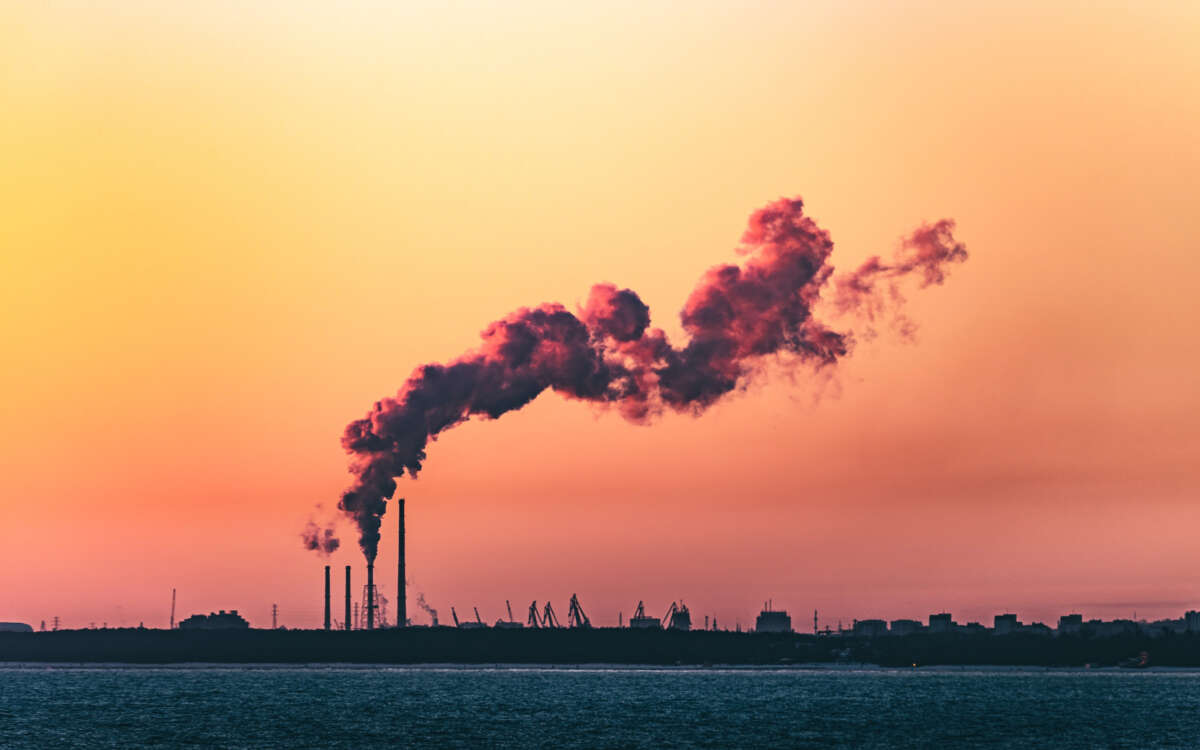Air pollution could be helping drive a rise in drug-resistant infections, which pose a dangerous threat to global public health, according to a new study.
The paper, published Monday in Lancet Planetary Health, concludes that particulate air pollution (PM2.5), which comes from burning fossil fuels for energy, industrial processes, and transportation, may be one of the largest contributors to the spread of antibiotic resistance worldwide. The link between the two phenomena has strengthened over time, according to the research.
“The benefits of controlling air pollution could be two-fold: not only will it reduce the harmful effects of poor air quality, it could also play a major role in combating the rise and spread of antibiotic-resistant bacteria,” said Hong Chen, the paper’s lead author and a professor of environmental science at Zhejiang University in China, in a statement.
The vast majority of the world’s population lives in areas where air pollution exceeds health standards set by the World Health Organization (WHO), meaning that they breath air containing high levels of pollutants, including PM2.5. Breathing polluted air raises the risk of premature death from heart disease, lung disease, stroke, and cancer affecting the lungs or airways. The Biden Administration has proposed multiple new policies to try to limit PM2.5, including tighter standards for soot pollution, new vehicle emissions standards, and improved reporting of air pollutants.
Excess Deaths
Antibiotic resistance is a growing problem worldwide. When antibiotic resistant bacteria spread, they can cause infections that do not respond to treatment. According to the WHO, antibiotic resistance has made certain infections, such as pneumonia, tuberculosis, gonorrhea, and salmonella more difficult to treat, leading to longer hospital stays, higher medical costs, and a higher likelihood of death.
In the US alone, about 2.8 million antibiotic-resistant infections occur each year, and those infections cause more than 35,000 annual deaths, according to the Centers for Disease Control (CDC).
Misusing or overusing antibiotics is one cause of the problem, since overusing antibiotics causes infectious bacteria to develop a tolerance to the drugs. But the spread of antibiotic-resistant bacteria through humans, animals, and the environment also exacerbates the problem, and air pollution from PM2.5 may be one pathway that facilitates the spread, the new paper suggests.
The researchers used data showing antibiotic resistance in human blood and spinal fluid, along with air pollution data, from 116 countries across nearly two decades. They found that a 1% increase in air pollution was associated with increases in antibiotic resistance of up to 1.9%, depending on the exact type of bacteria.
Antibiotic resistance spread as a result of air pollution caused 480,000 premature deaths in 2018, the authors estimate. If no action to reduce air pollution is taken, more human lives will be put at risk, they write.
A Connection to Cattle
The authors of the new paper did not indicate a reason for the link between air pollution and antibiotic resistance. However, PM2.5 in the air can carry antibiotic-resistant bacteria, said Philip Smith, a professor of environmental toxicology at Texas Tech University. When those particles are inhaled by humans or animals, antibiotic-resistant infections may spread. However, said Smith, more research is needed to determine whether inhaling antibiotic-resistant bacteria from the air directly causes antibiotic-resistant infections.
Previous research by Smith and others has indicated that antibiotic drugs and bacteria carrying antibiotic-resistant genetic material are dispersed via air pollution from cattle feedlots in Texas. The animal agriculture industry is another main driver of antibiotic resistance — farmers often treat livestock with antibiotics preventatively, to avoid infections and to induce growth. The widespread use of antibiotics among livestock accelerates antibiotic resistance in on-farm bacteria, which can then spread throughout the broader environment.
“It’s really important that people begin to acknowledge that this is a really viable pathway for transmission of antibiotic resistance in the environment,” said Smith.
Global efforts to reduce air pollution could avoid almost a quarter of premature deaths due to antibiotic resistance, the authors estimate.
“Controlling air pollution … might lead to substantial health and economic benefits by reducing antibiotic resistance,” the authors wrote.
Media that fights fascism
Truthout is funded almost entirely by readers — that’s why we can speak truth to power and cut against the mainstream narrative. But independent journalists at Truthout face mounting political repression under Trump.
We rely on your support to survive McCarthyist censorship. Please make a tax-deductible one-time or monthly donation.
